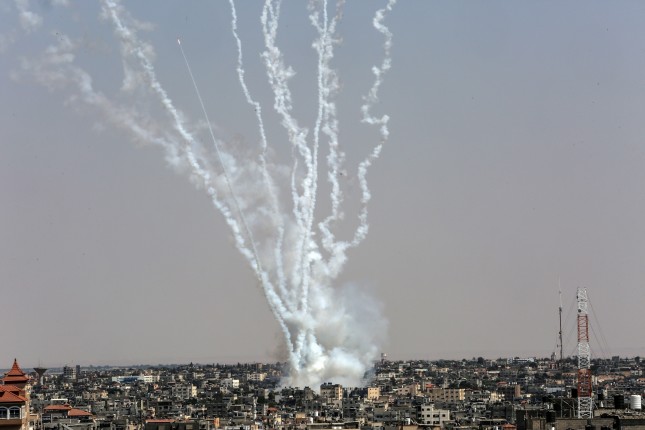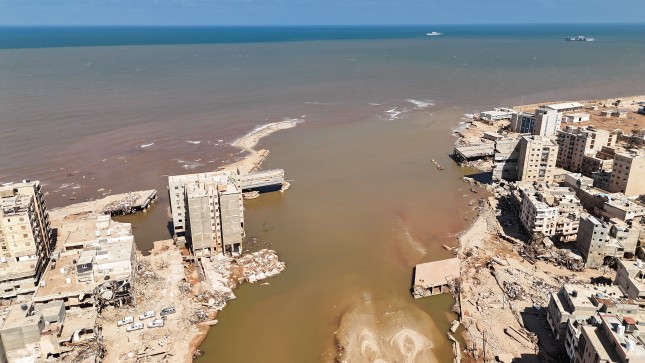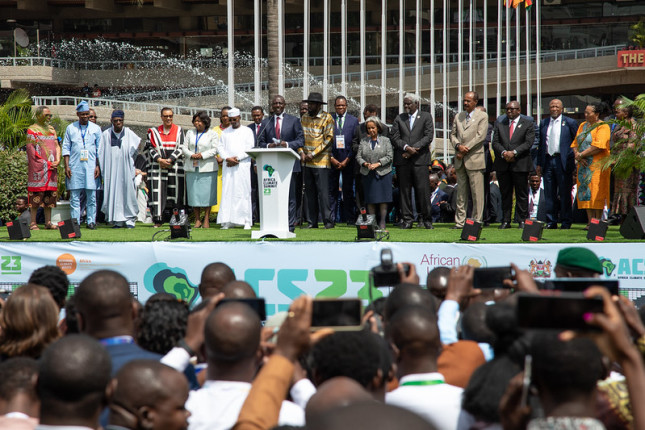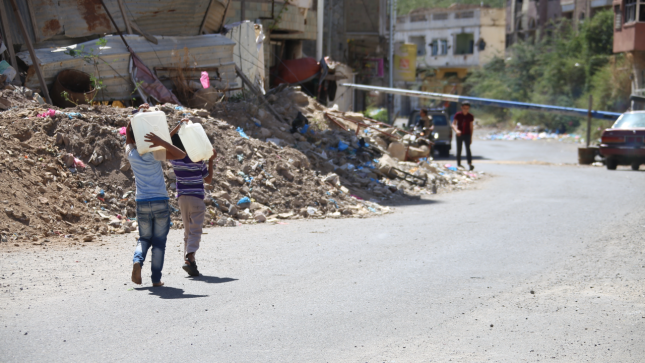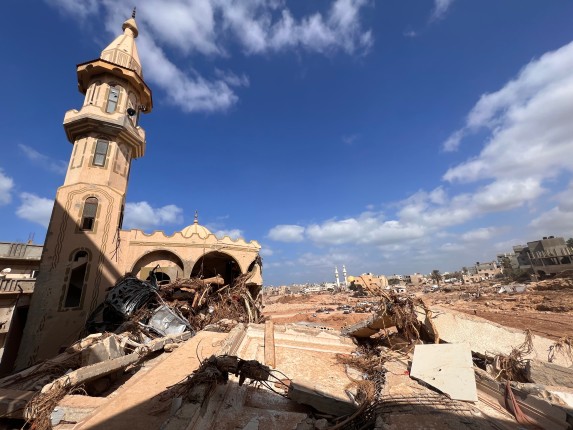-
ECSP Weekly Watch | October 16 – 20
› A window into what we are reading at the Wilson Center’s Environmental Change and Security Program
A window into what we are reading at the Wilson Center’s Environmental Change and Security ProgramWater Security Concerns in Gaza
Hamas’ surprise attack on Israel on October 7th led the Israeli government to cut off water supplies to the Gaza Strip with immediate effect. This has resulted in a clean water crisis that the UN warns is now a matter of life and death.
-
ECSP Weekly Watch | October 9 – 13
›
A window into what we are reading at the Wilson Center’s Environmental Change and Security Program
Organizing Regional Action on Climate Change, Health, and Environment
As the 2030 deadline for the Sustainable Development Goals looms, the World Health Organization has proposed a new regional framework that aims to build climate-resilient and sustainable health systems, improve the health sector’s access to climate funding, and build an evidence base for policymaking.
-
A Reminder from Israel and Gaza on the Importance and Limitations of Environmental Peacebuilding
›
I flew into Tel Aviv last Friday afternoon, primed for a week of meetings with Israeli and Palestinian environmentalists and officials. By sounding out these men and women in Jerusalem, the West Bank, and other parts of the region, I hoped to expand on past explorations of their transboundary cooperation, widely recognized as a model for environmental peacebuilding. Through an articulation of the successes that they––and their Jordanian peers–have had in bolstering water access, renewable energy, and environmental protection across their shared natural landscape, I was looking forward to telling a positive environmental conflict story—particularly one in a place that is often bereft of good news.
-
From Floods To Disaster: A Conflict- And Climate-Sensitive Recovery Pathway For Libya
›
More than 11,300 people are confirmed to have died in the floods that struck eastern Libya on September 11, 2023, far surpassing many estimates of the death toll in the country’s 2011 civil war. Thousands are still missing. Flooding has washed away approximately 25% of the city of Derna, and damage to roads and bridges is curtailing emergency service access. A rapid attribution study estimated that the extreme rain was at least a “1-in-300 year event.” This is far beyond previously recorded incidents, yet such incidents are now up to 50 times more likely—and up to 50% more intense—when compared to a 1.2°C cooler climate.
-
ECSP Weekly Watch | October 2 – 6
›
A window into what we are reading at the Wilson Center’s Environmental Change and Security Program
A Warming World is Accelerating the Spread of Dengue
Dengue is now endemic in most Latin American countries. But scientists warn that a warming climate is increasing the pace of breeding and transmission of dengue-carrying mosquitoes, and bring them into new countries.
-
Africa’s First Climate Summit: From Victim to Leader?
›
The UN Environment Programme has described Africa as the most vulnerable region in the world to climate change. Despite only being responsible for 3% of global emissions, the continent has been battered by extreme weather events, including droughts, cyclones, wildfires, and sandstorms. One in three people across Africa faces water scarcity. The continent’s agricultural sector, which represents a significant share of African countries’ GDP and employment, is highly exposed to climate change.
-
Disasters in Armed Conflict Zones: Silver Linings or Total Devastation?
›
When catastrophic floods struck civil war-ridden Libya in the late summer of 2023, the catastrophe caused over 10,000 deaths and wreaked immense destruction throughout the nation’s northeastern regions. But because none of the warring factions were in full control of the country and international responders were concerned about being caught in the crossfire, relief efforts were delayed and limited. This confluence of factors amplified human suffering, particularly in Libya’s remote and worst-affected areas.
-
Q&A: Peter Schwartzstein on Conflict & Climate in Libya
›
In the wake of Storm Daniel, which hit Libya in September 2023, ECSP spoke with Wilson Center Global Fellow Peter Schwartzstein about the storm’s tragic fallout and its connection to conflict. As an environmental journalist and consultant, Schwartzstein has written extensively about the climate-conflict nexus and other environmental and geopolitical issues, primarily in the Middle East, North and East Africa.
Showing posts from category disaster relief.


